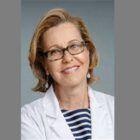Deborah Axelrod, M.D.

I first became interested in medicine when I was majoring in chemistry at the University of Pennsylvania. One day, my mentor asked me to assist in a joint project with the Hospital of the University of Pennsylvania—and with that exposure came my love for patients and medicine.
Truth be told, I wanted to be a comedian or a chemist. Unfortunately, I’m not funny enough to be a comedian but too funny for chemistry. So, I settled on medicine.
I am a surgeon who specializes in breast disease and cancer. When I received my medical training, this was a rapidly growing field but was not yet considered a specialty. I was inspired by physicians such as Peter Pressman, Susan Love, and Robert Hermann—all pioneers in breast conservation surgery, in which some cancers can be treated with a lumpectomy coupled with radiation therapy instead of a more aggressive mastectomy.
From the very beginning, my relationship with my patients has been one of the most important parts of my job. Every woman comes to me with a different set of experiences and needs, and I make sure this guides her treatment plan. I admire how brave women are when they receive a new diagnosis, and it’s rewarding to be able to help them make the decisions that are best for their individual circumstances. I believe in having an ongoing dialogue with my patients about their care, and I am most gratified when I see them recover and live healthy lives.
In addition to the universal concerns associated with breast cancer diagnosis and treatment, I also consider the age-specific issues that my patients face. Younger women may be concerned about preserving fertility, or how their diagnosis and treatment might affect their young children. Older women may be balancing cancer treatments with other health issues such as osteoporosis or menopause. I listen to their concerns and take all of these considerations into account when developing a treatment plan for each person.
I am the founder and director of community outreach and education programs, as well as the weekly multidisciplinary breast cancer case management conference at Perlmutter Cancer Center. In addition, I am a board member of several organizations that support and advocate for women affected by breast cancer. These groups include SHARE—an organization that supports women who have breast and ovarian cancer—Young Survival Coalition, Cancer 101, and Sharsheret.
My research has been published in more than 200 peer-reviewed journals. To advance education in the field, I co-wrote a bestselling book on breast health, with 100 percent of the proceeds donated to benefit breast cancer organizations. I was a founding committee member of the National Breast Cancer Coalition and have received a number of honors and awards from the Susan G. Komen foundation, SHARE, and the American Cancer Society, among others.
The treatment of breast cancer has changed dramatically and for the better as we learn more about the biology of cancer. At Perlmutter Cancer Center, we are making strides in developing new treatment protocols, and we are gaining new understanding of how young women can reduce their risk of developing breast cancer. Breast cancer will not go away today or tomorrow. But make no mistake—it will go away. Finding the solution won’t be easy, but as physicians and researchers we must be persistent.
